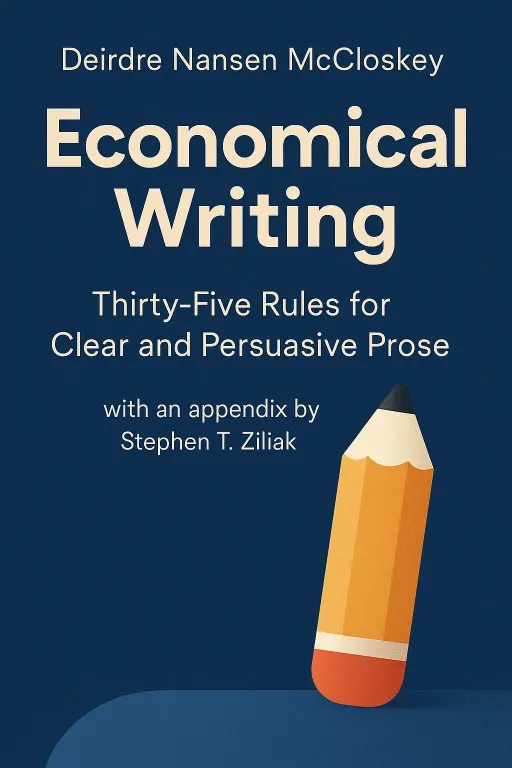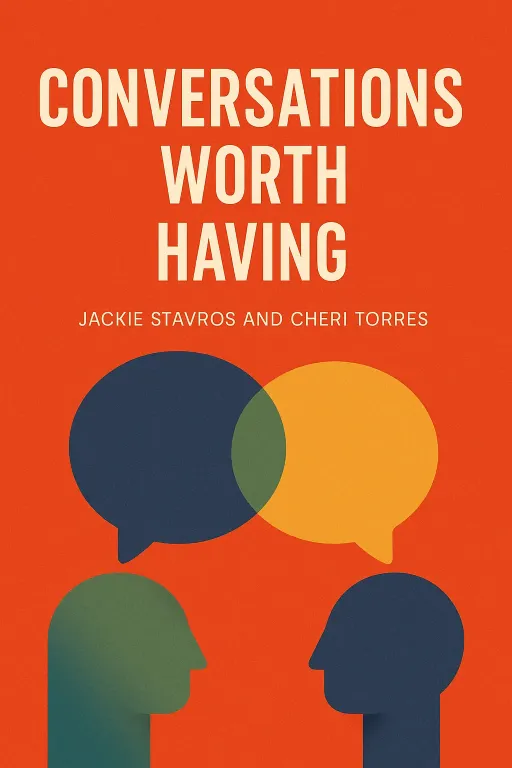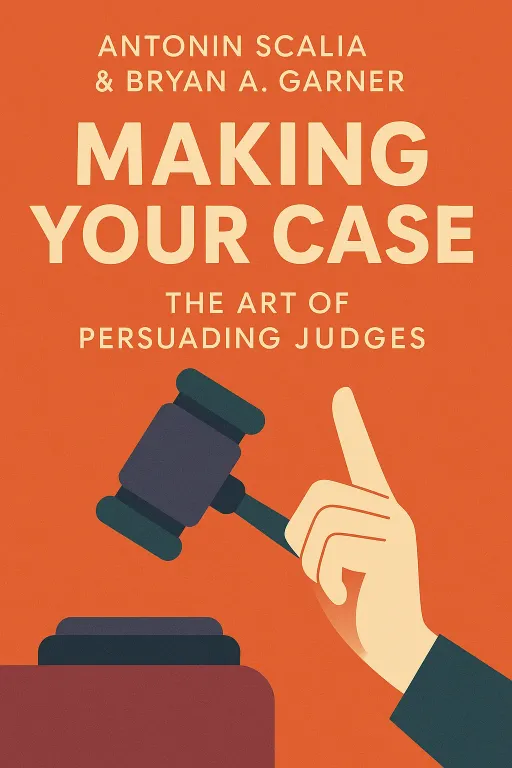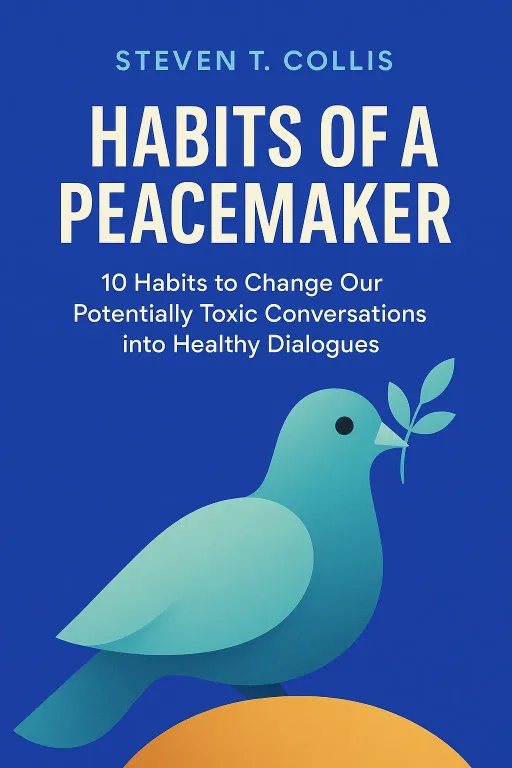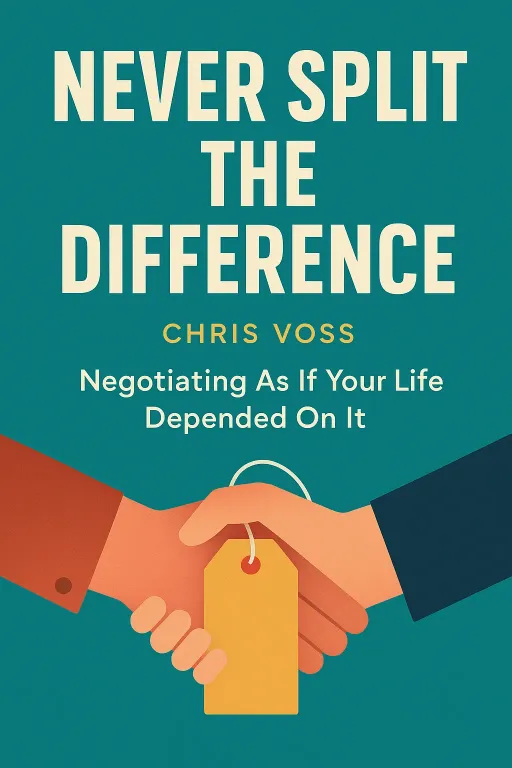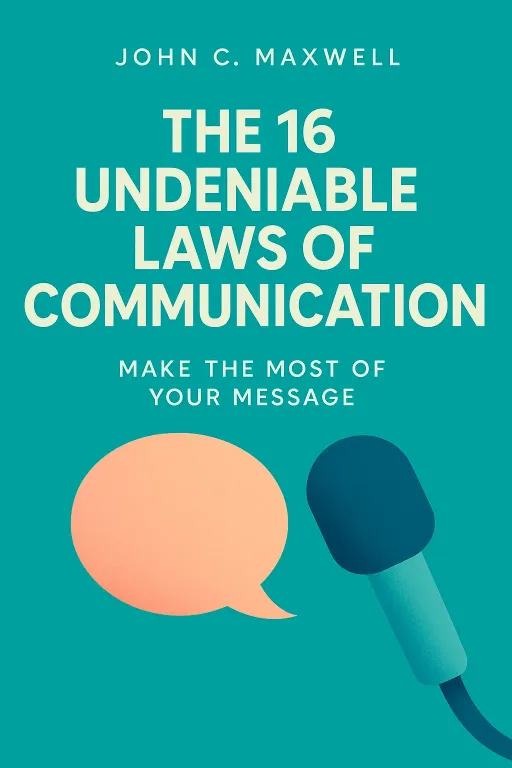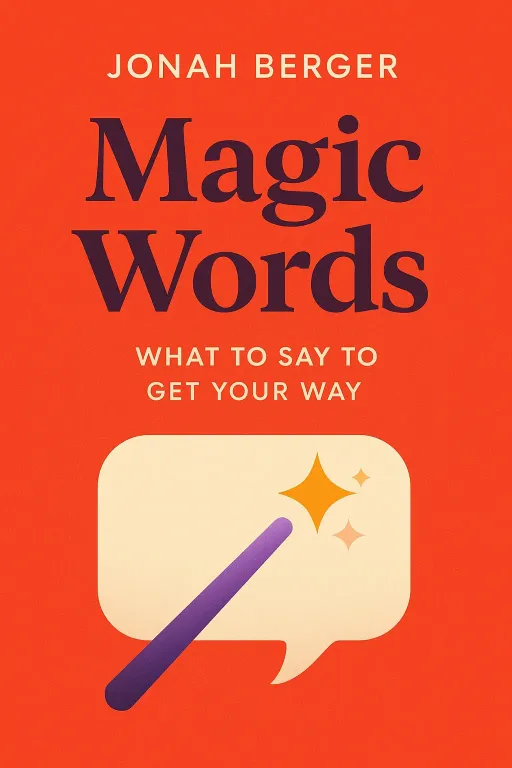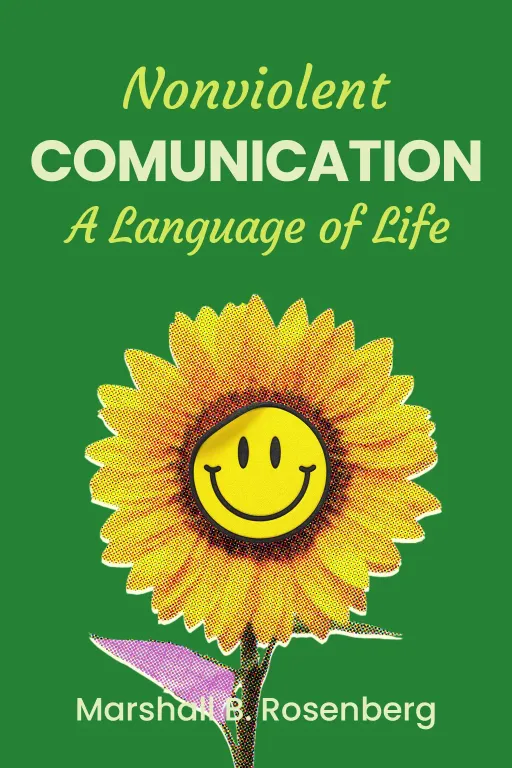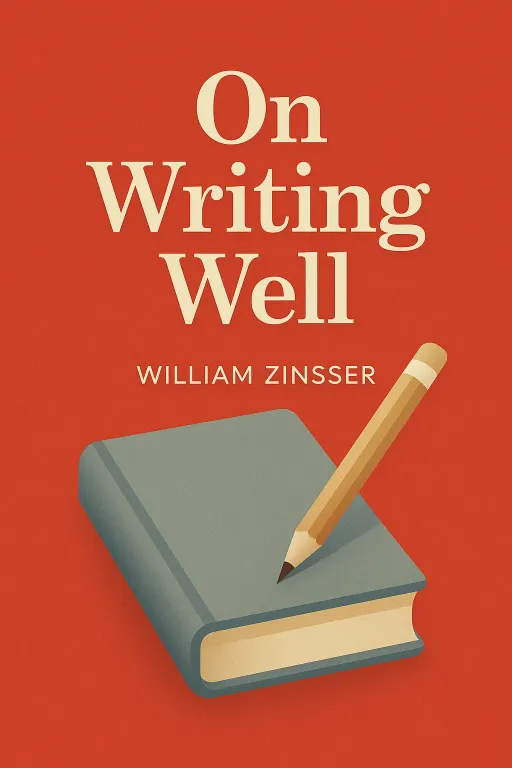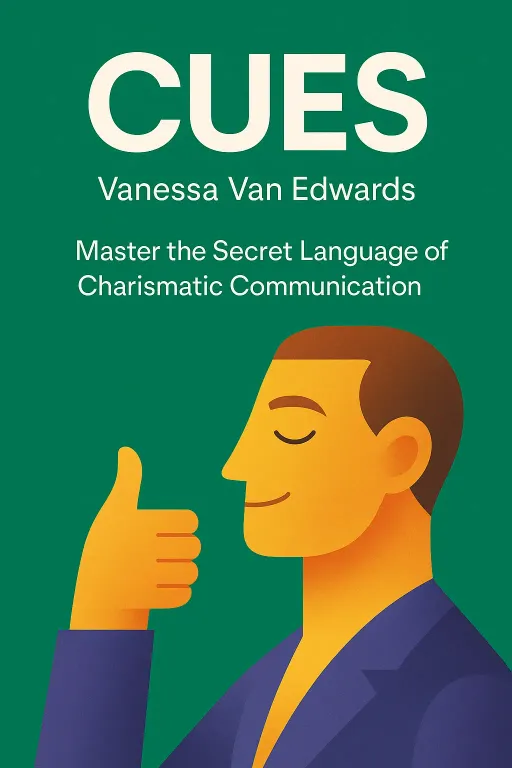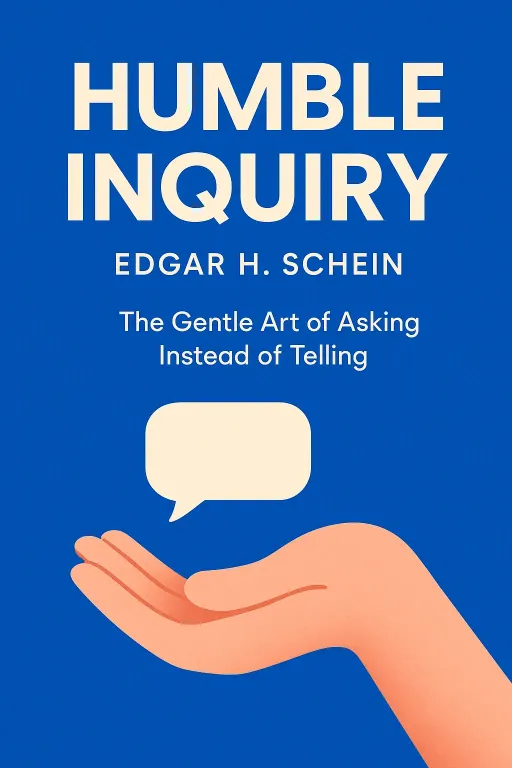
Why Asking Beats Telling
13 minThe Gentle Art of Asking Instead of Telling
Golden Hook & Introduction
SECTION
Michelle: The most dangerous phrase in management isn't "you're fired." It's "let me tell you something." Mark: Whoa, that's a bold claim. I feel like I say "let me tell you something" about five times before my first coffee. It’s how I signal that I’m about to drop some wisdom. Michelle: And that's the trap! We're all taught that leaders, parents, experts—people with status—are supposed to provide answers. But what if the single most important skill for anyone in a position of influence is admitting they don't have them? Mark: Okay, you have my attention. That feels completely counter-intuitive to everything we learn about being competent. Michelle: That's the radical idea at the heart of Humble Inquiry: The Gentle Art of Asking Instead of Telling by Edgar H. Schein. Mark: Ah, Schein! He's a legend, right? Professor at MIT for nearly fifty years, basically the godfather of organizational culture studies. It's fascinating that someone so accomplished, who consulted with massive global companies, wrote a whole book about the power of not knowing. Michelle: Exactly. And he wrote it in 2013, drawing on decades of experience, because he saw that in our increasingly complex world, the "do and tell" culture he identified, especially in the U.S., was causing catastrophic failures. This book was his answer. He saw that the simple act of asking a genuine question had become a lost art. Mark: A lost art that he argues we desperately need to rediscover. It sounds simple, but I have a feeling the execution is where it gets tricky. Michelle: It is. And Schein argues this 'telling' habit, this inhibitor to real connection, starts not in the boardroom, but in our most personal, everyday moments.
The Gentle Art of Asking: Why Our Brains Default to Telling
SECTION
Mark: I can already feel myself cringing in anticipation. What kind of personal moments are we talking about? Michelle: Schein shares a story from his own life that is just universally painful. He was a student, studying late one night for a huge, stressful finance exam. He was in the zone, totally focused, and had told his family, specifically his six-year-old daughter, not to interrupt him under any circumstances. Mark: Oh, I know where this is going. The knock on the door. Michelle: The inevitable knock on the door. And he does exactly what any of us might do. He snaps. He yells at her for interrupting him, for not listening. His daughter, of course, bursts into tears and runs away. Mark: Oof. That's a gut punch. I’ve been there. That's every parent's or just every busy person's nightmare. You react out of stress, and then the guilt hits you like a ton of bricks because you know you were completely out of line. Michelle: Completely. The next morning, his wife confronts him. She says, "I sent her down to you to say goodnight and ask if you wanted a cup ofcoffee to help with your studying. Why did you yell at her instead of asking her why she was there?" Mark: Wow. "Why did you yell instead of asking?" That one question just reframes the entire event. He was so caught up in his own world, his own task, that he couldn't even conceive that she might be there to help him. Michelle: That's the core of it. He defaulted to telling—"Don't interrupt me!"—instead of asking—"What's up?" He put his task accomplishment above the relationship, and in doing so, he missed the entire point of the interaction. This is the essence of what Schein is trying to fix. Mark: So what exactly is "Humble Inquiry" then? Is it just about being nicer when you ask questions? How is it different from the thousands of questions we ask every day? Michelle: That's a great question, because the distinction is crucial. Schein defines Humble Inquiry as "the fine art of drawing someone out, of asking questions to which you do not already know the answer, of building a relationship based on curiosity and interest in the other person." Mark: "Questions to which you do not already know the answer." That feels key. Because so many of our questions are not really questions, are they? Michelle: They're not! Schein contrasts Humble Inquiry with a few other types. There's 'Diagnostic Inquiry,' where you're steering the conversation to solve a problem you've already framed in your head. Think of a doctor asking a series of targeted questions to confirm a diagnosis they already suspect. Mark: Or a manager asking, "Have you tried rebooting it?" They're not curious; they're running a script. Michelle: Exactly. Then there's 'Confrontational Inquiry,' which is my personal favorite. This is when you're just telling someone something, but you disguise it as a question to be polite or to soften the blow. Mark: "Don't you think you should have prepared more for that presentation?" Michelle: Perfect example! You're not asking; you're telling them they were unprepared. Schein gives this wonderfully mundane story. He's admiring some mushrooms that popped up after a rain. A woman walks by with her dog, stops, and says in a loud voice, "Some of those are poisonous, you know." Mark: (laughing) Oh, that is such a specific type of person. The gratuitous 'helper.' Michelle: He replies that he knows, and she doubles down, "Some of them could kill you!" He was so offended. She wasn't helping; she was telling him something he already knew, which implicitly put him in a one-down position. He wished she had just asked, "What do you find so interesting about those mushrooms?" A real question. That one shift could have started a real conversation, a real relationship. Instead, it was just awkward. Mark: I see the difference. One is about asserting your own knowledge, and the other is about inviting someone else to share theirs. But I have to push back a little here. Isn't this a bit... soft for the real world? In a fast-paced work environment, we need to be efficient. We don't have time to ask about everyone's interest in mushrooms. Don't leaders need to be decisive and just tell people what to do? Michelle: That is the exact cultural assumption that Schein argues is not just inefficient, but actively dangerous. He would say that what you call 'efficiency' is often just a shortcut that leads to massive, costly mistakes. And that's where this idea moves from personal, awkward moments to the world of high-stakes, life-or-death consequences.
From Awkward Moments to Life-or-Death: Humble Inquiry in High-Stakes Worlds
SECTION
Mark: Okay, so you're saying this isn't just a 'nice-to-have' communication skill for building rapport. You're saying it's a critical tool for preventing failure. Michelle: It's a critical safety protocol. Schein spent his career studying organizations, and he saw this pattern everywhere. He uses the example of a multicultural surgical team to make it incredibly vivid. Picture an operating room in a British hospital. Mark: High pressure, zero room for error. Michelle: Exactly. The lead surgeon, Dr. Brown, is British—from a culture that can be quite hierarchical. The anesthesiologist, Dr. Tanaka, is Japanese, from a culture where questioning a superior is deeply taboo. The surgical nurse, Amy, is American, more direct but still aware of the steep hierarchy in an operating room. Mark: A perfect storm of cultural and professional status differences. Michelle: A perfect storm. Now, imagine Amy, the American nurse, sees Dr. Brown, the top-dog surgeon, about to use the wrong instrument. Her cultural programming might say "Speak up!" but the intense hierarchy of the operating room screams "Don't you dare question the surgeon!" She hesitates. That hesitation could be the difference between a clean procedure and a catastrophic bleed. Mark: And if it's Dr. Tanaka, the Japanese anesthesiologist, who sees the mistake? He's probably even less likely to say anything. He's been trained his whole life to show deference. Michelle: Precisely. The whole system is designed to prevent the upward flow of critical information. The people with the highest status often have the least complete picture of what's happening in the moment, but the culture prevents them from accessing the knowledge of those lower in the hierarchy. Mark: Wow. So in that case, a lack of Humble Inquiry—the surgeon's failure to create a space where he can be questioned—can literally kill someone. This isn't about hurt feelings anymore. It's about patient safety. Michelle: This is what so much of the research on medical errors shows. It's not usually a lack of skill; it's a failure of communication. And it's why Schein's work is so foundational to the modern concept of psychological safety. He was talking about this decades ago. Mark: It really is the same principle. Psychological safety is the belief that you won't be punished or humiliated for speaking up with ideas, questions, concerns, or mistakes. The surgeon who yells at a nurse for questioning him creates zero psychological safety. Michelle: And the surgeon who, before the operation, says to the team, "I'm relying on all of you. If you see anything that looks off, I need you to tell me immediately," is practicing a form of Humble Inquiry. They are admitting their own fallibility and their dependence on the team. Schein calls this "Here-and-now Humility." Mark: What's the distinction there? Humility feels like a general term. Michelle: Schein breaks it down. There's 'Basic Humility,' the deference we show to kings or gods. There's 'Optional Humility,' the respect we show to someone who has achieved great things, like a Nobel laureate. But the most important type for this discussion is 'Here-and-now Humility.' Mark: Okay, break that down for me. Michelle: Here-and-now Humility is recognizing that in this specific moment, to accomplish this specific task, you are dependent on someone else. It doesn't matter if you're the CEO and they're the intern. If the intern is the only one who knows how the new software works, you are, in that moment, dependent on them. Your status is temporarily lower than theirs on that specific issue. A leader who can't access that humility, who can't ask the intern for help without feeling diminished, is a leader who is going to fail. Mark: That's a powerful reframe. It's not about being a generally humble person; it's about accurately assessing the reality of a situation. The surgeon is dependent on the nurse's eyes. The pilot is dependent on the co-pilot's readings. I remember reading about airline accidents where the black box revealed the junior officer timidly suggesting something was wrong, and the captain just barreling ahead. Michelle: That's the classic case. The culture of 'telling' from the captain's seat overrode the critical data coming from the co-pilot. Humble Inquiry is the antidote. It's the captain turning and asking, "What are you seeing over there? Tell me if I'm missing something." It's a statement of vulnerability that opens the door to crucial information. Mark: It's interesting because some of the reader reviews for this book mention that it feels a bit repetitive or maybe too focused on these superior-subordinate dynamics. But hearing these examples, it feels like that's the entire point. That's where the most dangerous communication failures happen. Michelle: I think that's right. Schein is laser-focused on that status gap because it's the biggest barrier to the flow of truth in any organization. If you can't solve for that, none of the other communication tips matter.
Synthesis & Takeaways
SECTION
Mark: It's really clicking for me now. The whole thing operates on the same internal mechanism, whether it's a small, personal moment or a massive systemic failure. It starts with the dad in his study, reacting with anger because his ego and his task-focus blind him to his daughter's true intent. Michelle: And that same mechanism—our ego, our cultural bias for action and telling, our fear of looking ignorant—is what causes a surgeon to ignore a nurse or a CEO to dismiss a critical warning from a frontline employee. Mark: So the solution isn't to learn a new set of clever questions. It's not a script. Michelle: No, and that's the most profound insight. Humble Inquiry isn't a technique; it's an attitude. It's the moment-to-moment discipline of overriding our deep cultural programming. In a world that constantly rewards the appearance of certainty, Schein teaches us that the most powerful and wisest position is one of genuine curiosity. Mark: It’s about having the courage to be the one in the room who asks, "I might be missing something here, what's really going on?" or "Can you help me understand?" Michelle: Yes! It's the ultimate act of confidence, really. It's the confidence to be vulnerable, to empower someone else with your attention, and to build a relationship on a foundation of mutual respect instead of status. It's a small act with revolutionary consequences. Mark: So for our listeners, the practical takeaway here isn't to go out and memorize a list of "humble questions." It's something much simpler, isn't it? Michelle: Much simpler. It's about the pause. Mark: The pause. I like that. The next time you're about to jump in with advice, a solution, or a "let me tell you something," just... pause. And in that pause, maybe ask one more question instead. Something as simple as, "How are you thinking about this?" or "What have you tried so far?" Michelle: That's it. You're not trying to solve their problem. You're trying to understand their world. That simple shift changes everything. Mark: It feels like a skill that's more important now than ever, with teams being more diverse and remote, and problems being more complex. The lone genius leader who has all the answers is an outdated myth. Michelle: It's an extinct species. The future belongs to the humble inquirer. So, maybe the final question for everyone listening is the one we can ask ourselves. Mark: What's one conversation this week where you could choose to ask instead of tell? Michelle: This is Aibrary, signing off.
